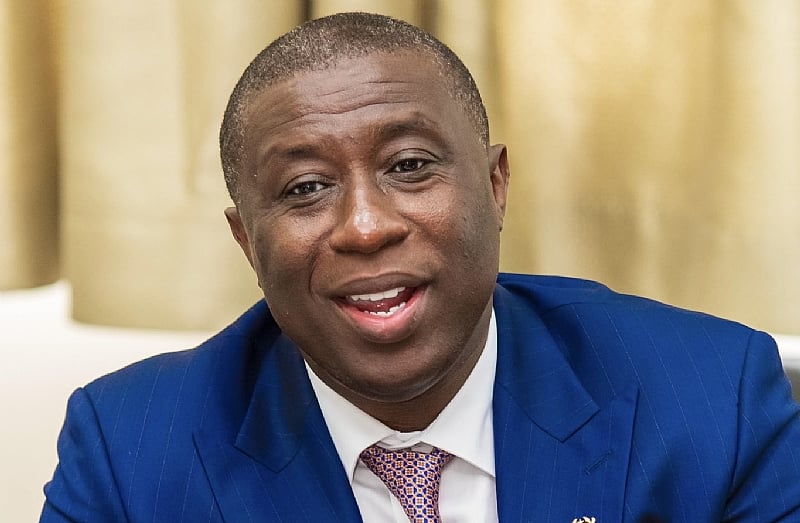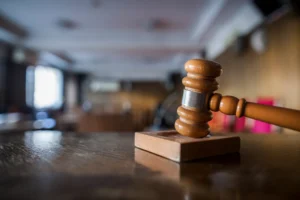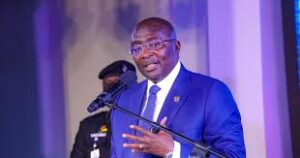Patrick Boamah Denies Alleged Endorsement of Mahama, Claims AI-Generated Video

The Member of Parliament for Okaikwei Central, Patrick Yaw Boamah, has categorically denied a viral video circulating on the social media platform X (formerly Twitter), which falsely claims that he has endorsed the flagbearer of the opposition National Democratic Congress (NDC), John Mahama. The video, which surfaced on November 28, 2024, appears to show Boamah urging voters to support him in the upcoming parliamentary elections while simultaneously voting for Mahama as president. This type of voting, known as “skirt and blouse,” involves voters selecting candidates from different political parties for different positions, which in this case, would imply Boamah endorsing Mahama, despite representing the New Patriotic Party (NPP).
The video, shared by a user named Political Warden (khkayy27), quickly gained traction on social media. In it, the manipulated footage appears to show Boamah suggesting that voters should vote for Mahama, a message that goes against his allegiance to the NPP. The viral clip raised concerns, especially since it was released shortly before the December 7, 2024, general elections, which would intensify political campaigns and influence voter decisions.
However, in a statement issued on November 29, 2024, Boamah emphatically dismissed the claims made in the video, labeling it as a “false AI-generated fabrication” designed to mislead the public. He stated that the video had been altered with a voiceover generated by artificial intelligence, which had been used to falsely portray him as supporting Mahama’s candidacy. Boamah expressed his dismay over the misleading nature of the content and the potential harm it could cause to his political reputation.
He further denounced the video as malicious propaganda aimed at creating confusion and division within the electorate. According to Boamah, the purpose of this video was not only to tarnish his image but also to sow distrust among his supporters and the general public. Boamah has represented the Okaikwei Central constituency as a member of the NPP for several years and is firmly aligned with the party’s ideologies and the candidacy of President Nana Akufo-Addo. The release of this doctored video, which attempts to link him to the opposition, could potentially undermine his relationship with voters who have supported him and his party in the past.
The MP urged Ghanaians to reject the video and any further misinformation that may circulate, stressing that such tactics were part of a broader strategy to distract and mislead the public in the lead-up to the election. Boamah’s statement is an appeal for voters to focus on the facts and not be swayed by the spread of fake news and false narratives, which he believes are harmful to the democratic process.
Boamah’s rejection of the video comes amid a tense and highly competitive political environment as Ghana approaches its general elections. The country has witnessed an intense political rivalry between the NPP and the NDC, with both parties vying for the trust of voters across the nation. With the December 7 elections fast approaching, the spread of misinformation has become a critical concern, with both major parties and their supporters being targeted by various forms of digital manipulation and propaganda.
In light of this, Boamah’s response serves as a reminder of the risks posed by the unchecked spread of fake news, particularly on social media platforms. The rise of artificial intelligence tools capable of altering videos and creating convincing deepfakes has raised new challenges for political figures and their communications teams. The impact of such fabricated content can be substantial, as it can influence voter perceptions and potentially change the course of an election.
Boamah’s call to disregard the manipulated video is part of a broader effort to combat misinformation in Ghana’s political discourse. It is crucial, he argues, that voters remain informed and aware of the potential for digital manipulation in the current political climate. As the election day draws near, Boamah’s statement underscores the importance of protecting the integrity of the electoral process and maintaining a focus on genuine political dialogue.
In conclusion, Patrick Yaw Boamah’s swift rejection of the viral video circulating on social media is an important response to an attempt to mislead voters in the run-up to the December 7 elections. By discrediting the false video and urging the public to stay vigilant against digital manipulation, Boamah seeks to safeguard his reputation and ensure that voters are not misled by malicious tactics aimed at distorting the political narrative.






